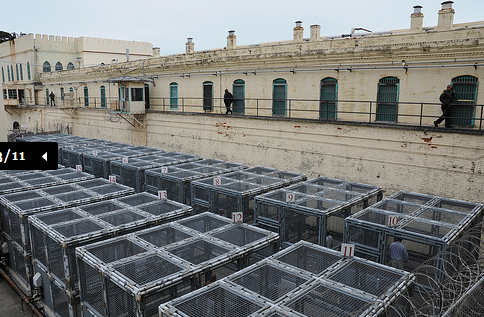Mike Whitney wrote a great column recently titled “Is It Immoral to Vote for Obama?” Based on Obama’s predilection to kill large numbers of people around the Middle East in pursuit of foreign policy objectives, Whitney argued, it would indeed be immoral to vote for him. He isn’t the lesser of two evils. He is worse than Bush, which makes him evil, period.
I would argue that it is immoral to vote for Obama because he is guilty of the negligent homicide of 70,000 American citizens every year.
Consider what negligent homicide is. Legally it means that somebody died, and that the defendant should reasonably have been aware of the risk and instead of doing something to stop it, he “intentionally, knowingly or recklessly” acted in such a way that the death occurred.
Ethically, it means that you could have prevented a death at little or no risk to yourself, and you chose not to. It means that if you see a child crawl into a refrigerator and shut the door, and you don’t let him out, you bear responsibility for his death.
Now consider what Obama did on September 2. It was Friday before Labor Day, an infamous date almost every year because politicians use it to announce things that make them look bad. Most voters are traveling for the long weekend and aren’t paying attention. So just the choice of date proves he was aware that his decision was rotten, just as flight indicates consciousness of guilt.
He announced that day that he would not implement new regulations recommended by his own Environmental Protection Agency that would have cut the amount of smog we all inhale with every breath.
 Obama cut the rules that limit air pollution by utilities and other major polluters
Obama cut the rules that limit air pollution by utilities and other major polluters









